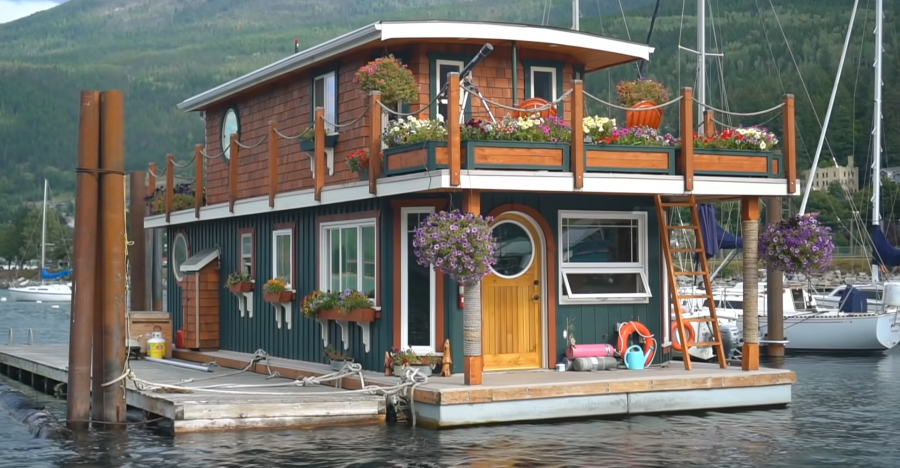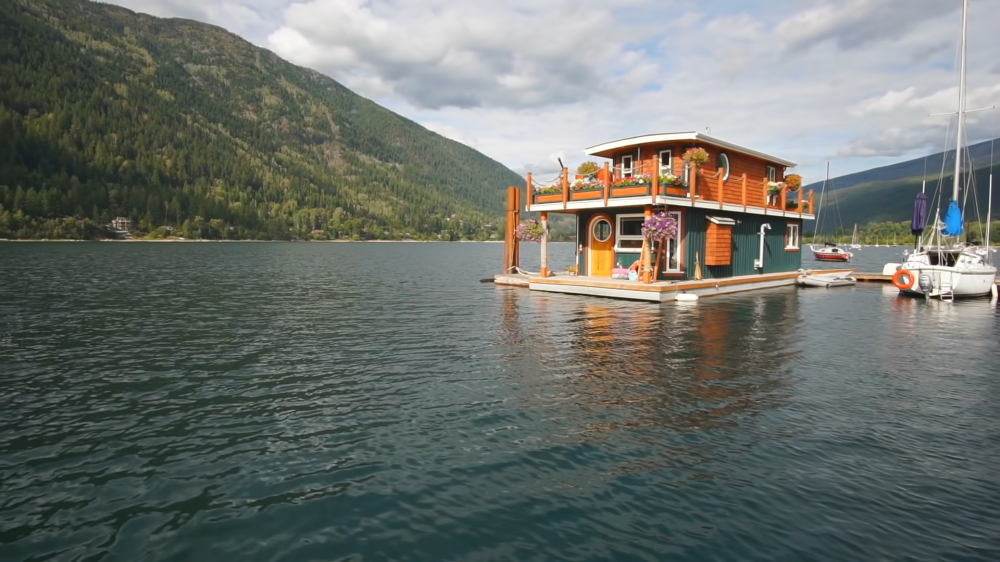Spectacular Floating Home Is Self-built & Off-Grid

Take a look inside of this stunning 700-square-foot, self-built float home that is fully off-grid with solar power, a pellet stove, a composting toilet, and an evaporation greywater system that ensures nothing is dumped overboard.
The off-grid tiny home has an open concept kitchen, living and dining space, a master bedroom and bathroom on the main floor, two bedrooms on the second floor, and the wraparound deck up top gives 360-degree views.
You'll want to take a full tour of this sustainable tiny floating house.
Jay built this home in his spare time between working, spending time with his kids, and sailing over 4 years as an alternative housing option to the country home he had before, which he felt was too expensive, too far from town, and too much maintenance. Now he doesn't have a lawn to mow or a driveway to shovel, and he is walking distance to all the amenities in town and just a few steps from his sailboat that is docked in the same marina.
It's not an easy lifestyle though, everything that goes in and out of the float home has to be carried there, including propane tanks, pellets for the woodstove, groceries, garbage, etc.
even in the middle of winter when docks are icy and the wind is blowing. Another thing to consider is that it's quite a public place with boaters and paddlers going by all day. But Jay says it's all about mindset and he's okay with these smaller challenges since it allows him a lifestyle that suits him perfectly. Shop Tiny Homes The houseboat is located on Kootenay Lake in British Columbia, Canada.
People go off-grid for a variety of reasons.
Some of the biggest reasons are that people seem to think life will be easier, less stressful, and maybe even make them happier. One thing for sure is that an off-grid life takes work, it's not always easy at times and takes a certain amount of effort, determination, and time. With that said there are plenty of positive aspects of living off the grid. The following are just a few of the basic reasons people choose to live life off the grid.
Renewable energy.
The use of renewable energy only makes sense. Using renewable energy is a wide option especially in a time that climate change is at the forefront of everyone's minds. Fossil fuels are not renewable, and given the rate, the planet is consuming they aren't going to be an option forever. So it makes sense to use completely renewable sources of energy, and that can be shared.
Self-sufficiency.
Living off the grid is all about living a self-sufficient lifestyle, one that is not dependent on outside resources because you create your resources thereby reducing or eliminating your dependence on the system.
Sustainable living.
Off-grid living is about living more sustainably. When you are not constantly consuming resources, you will be producing more than you consume. This has the added benefit of not only providing for you and your family but contributing to your local community.
Photo Gallery








































